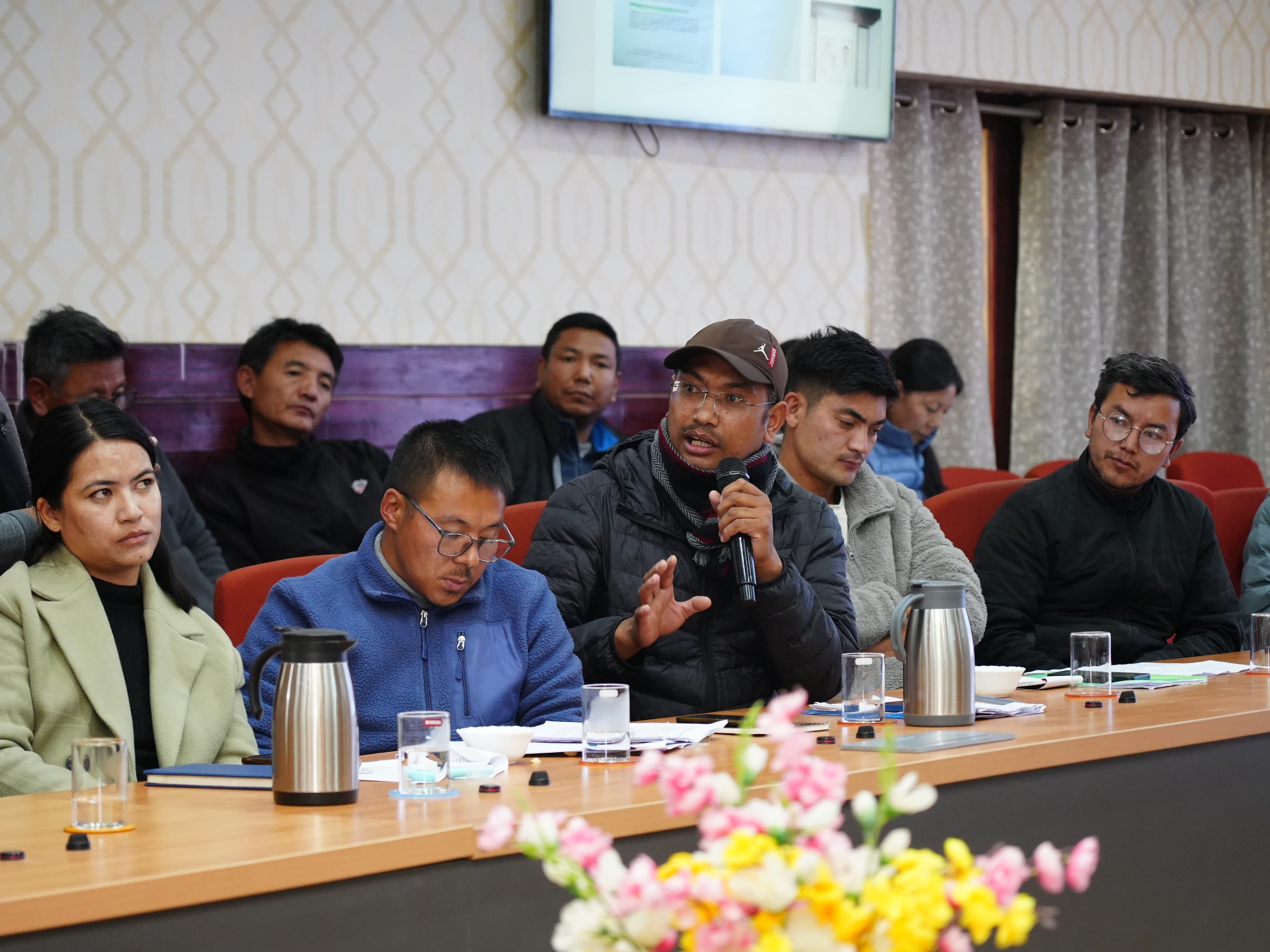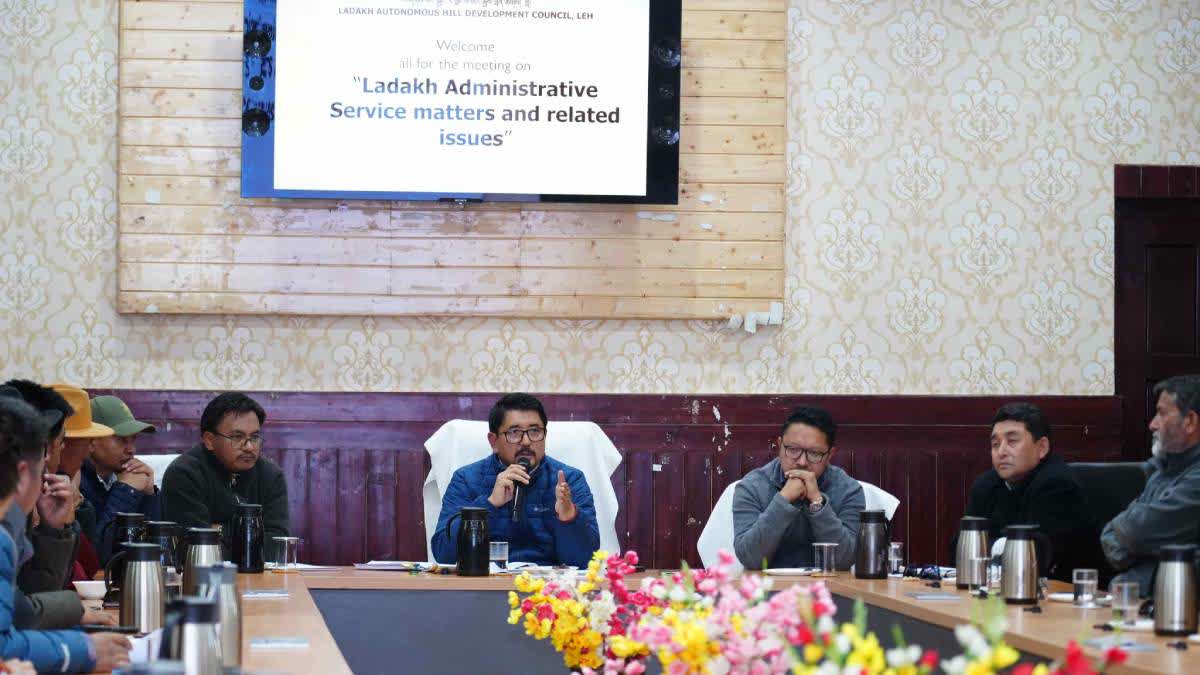Leh: A meeting on Ladakh Administrative Service matters and related issues chaired by Chief Executive Councillor, LAHDC, Leh Adv. Tashi Gyalson was held on Wednesday. During the meeting, it was suggested that the domicile should be in line with the Sikkim Model with proper cut-off and the reservation should be in line with the Arunachal Pradesh Model.
“During the recent meeting with Home Minister Amit Shah on October 20, we out rightly rejected the proposal of inclusion of Ladakh to Delhi, Andaman and Nicobar Islands Civil Services (DANICS) and Delhi, Andaman and Nicobar Islands Police Services (DANIPS) Cadres," Gyalson said, suggesting that a new consultative model should be thrashed out at the earliest.
“We still have one month for the talks with MHA and by that time we need to understand the nitty-gritty of the matter. The Hill Councils are the only elected body mandated to pass a resolution on this so that it will be easier for us to talk at the central level. We fully support the demands of gazetted aspirants as we already had many deliberations on this,” Chering Dorjey Lakrook, co-chairman of Leh Apex Body, said.
The Wednesday meeting was inconclusive according to Sonam Dawa, an aspirant for gazetted posts who said everyone understood that if Ladakh wanted a domicile it should be based on the Sikkim Model with the cut-off date. Not a single recruitment in the gazetted posts had taken place in Ladakh for the last five years.

“Following the abrogation of Article 370, one of the key promises was employment generation aimed at creating thousands of jobs. Unfortunately, this promise has not materialised, leaving us with limited opportunities to engage in the administration or governance,” Phuntsog Targais, another gazetted aspirant, said.
“It is the gazetted officer who stands in the position and power to implement the laws or the schemes of the Centre. Gazetted posts are such posts that eventually lead to the development of the region. They assume importance for the people of Ladakh as they help people to be a part of the executive order and help in overall development. Being a Ladakhi if you are given a task you will not have a short vision. They will make decisions thinking of the future generations and those decisions would be very sustainable considering everything such as the fragility of the environment and the sensitivity of the border with China and Pakistan,” Targais added.
Talking on the loopholes he said post abrogation of Article 370 the Ladakhis don't have any papers to establish their identity and are bereft of any reservation benefit. The stagnation in the recruitment process can be attributed to the administrative lacunae.
“The Ladakh Resident Certificate (LRC) itself is based on the state subject which has been outrightly rejected by the Supreme Court. The LRC doesn't have any constitutional backup and hence it is not being extended as a criterion for reservation. After the abrogation of Article 370, we can say that the identity of the people of Ladakh is in crisis. We are hopeful and looking forward to the tasks between the MHA and the high power committee on December 3. Although it’s almost been six years of recruitment hiatus, we are still hopeful of the government taking proactive steps to come out with a solution to unemployment,” Targais added.
Also Read:



